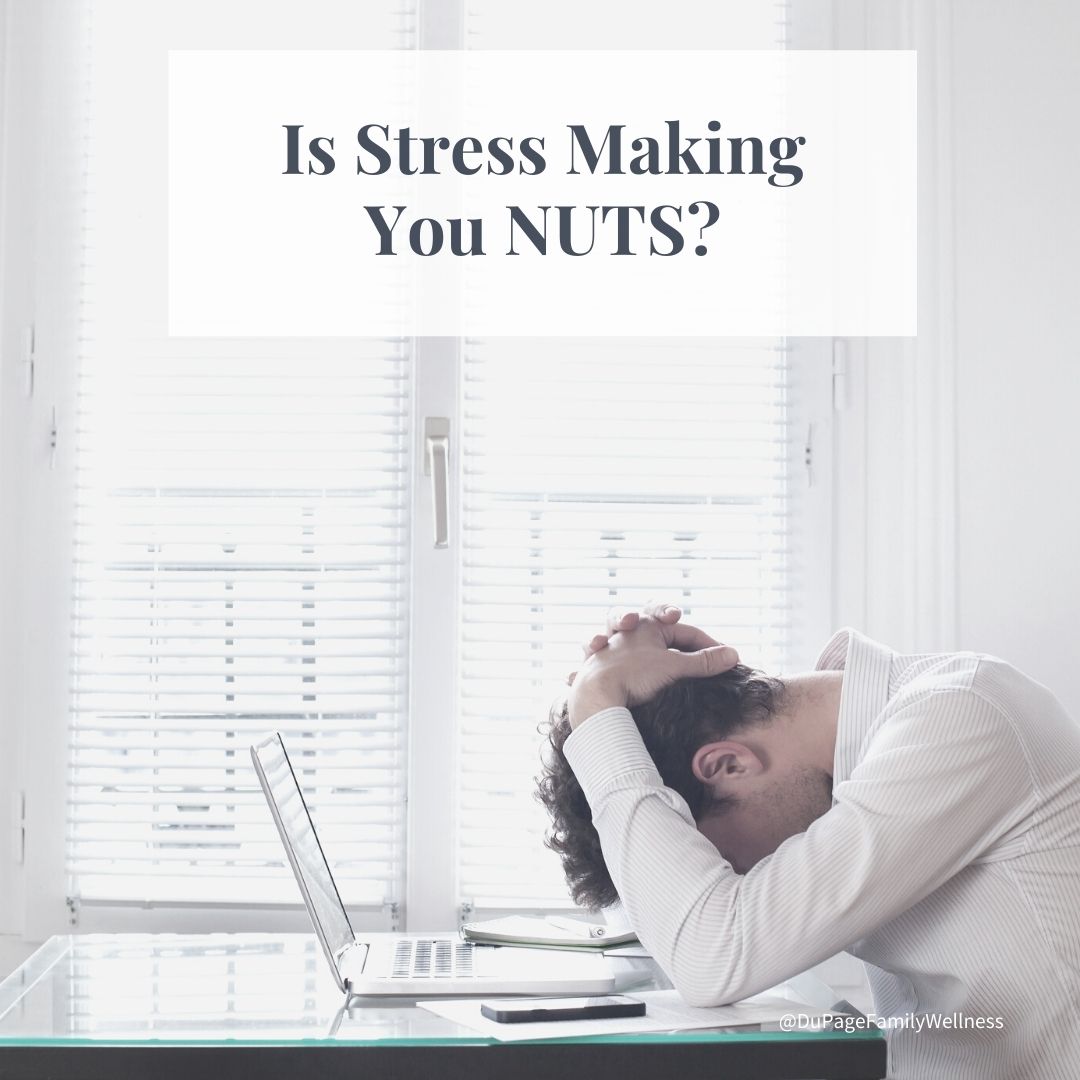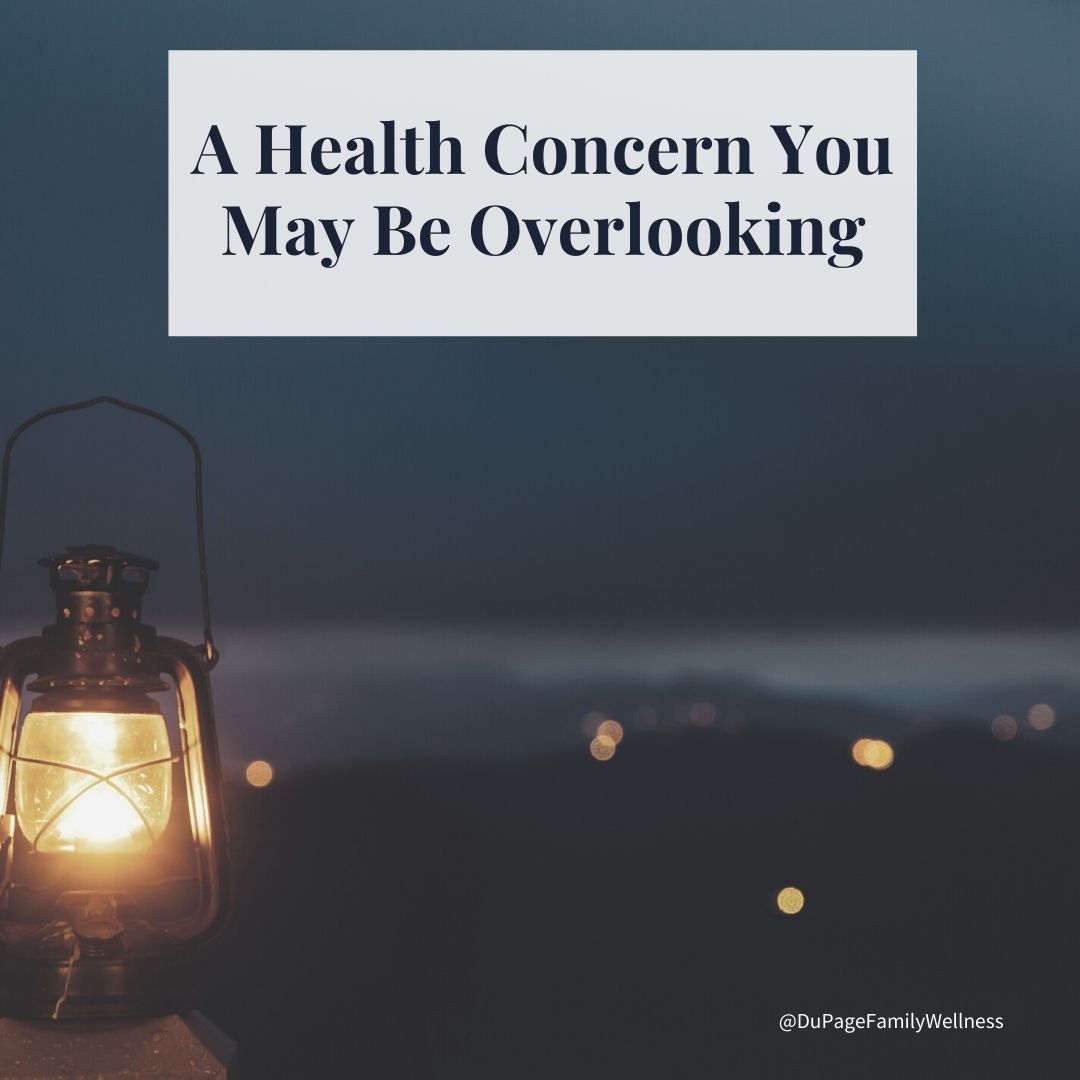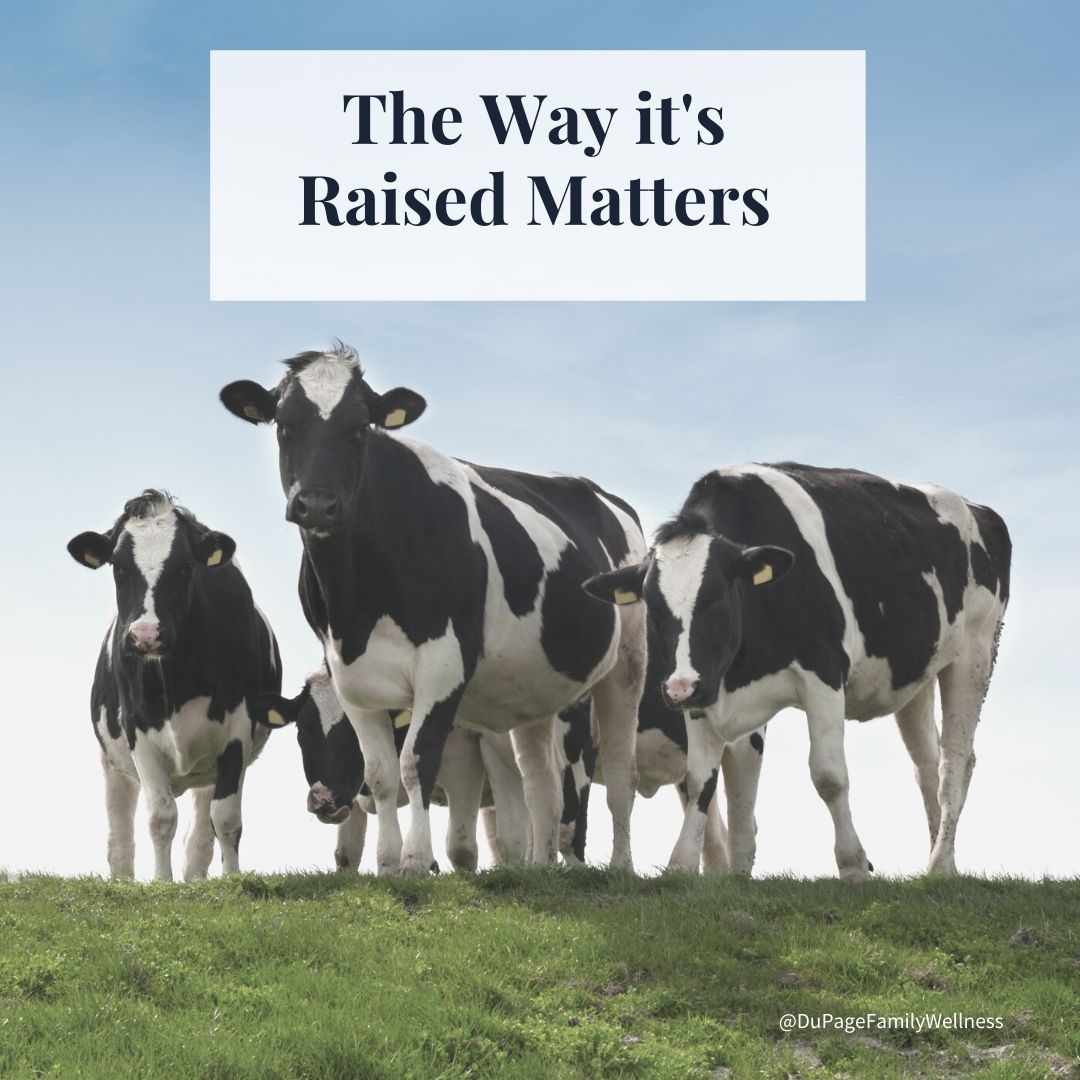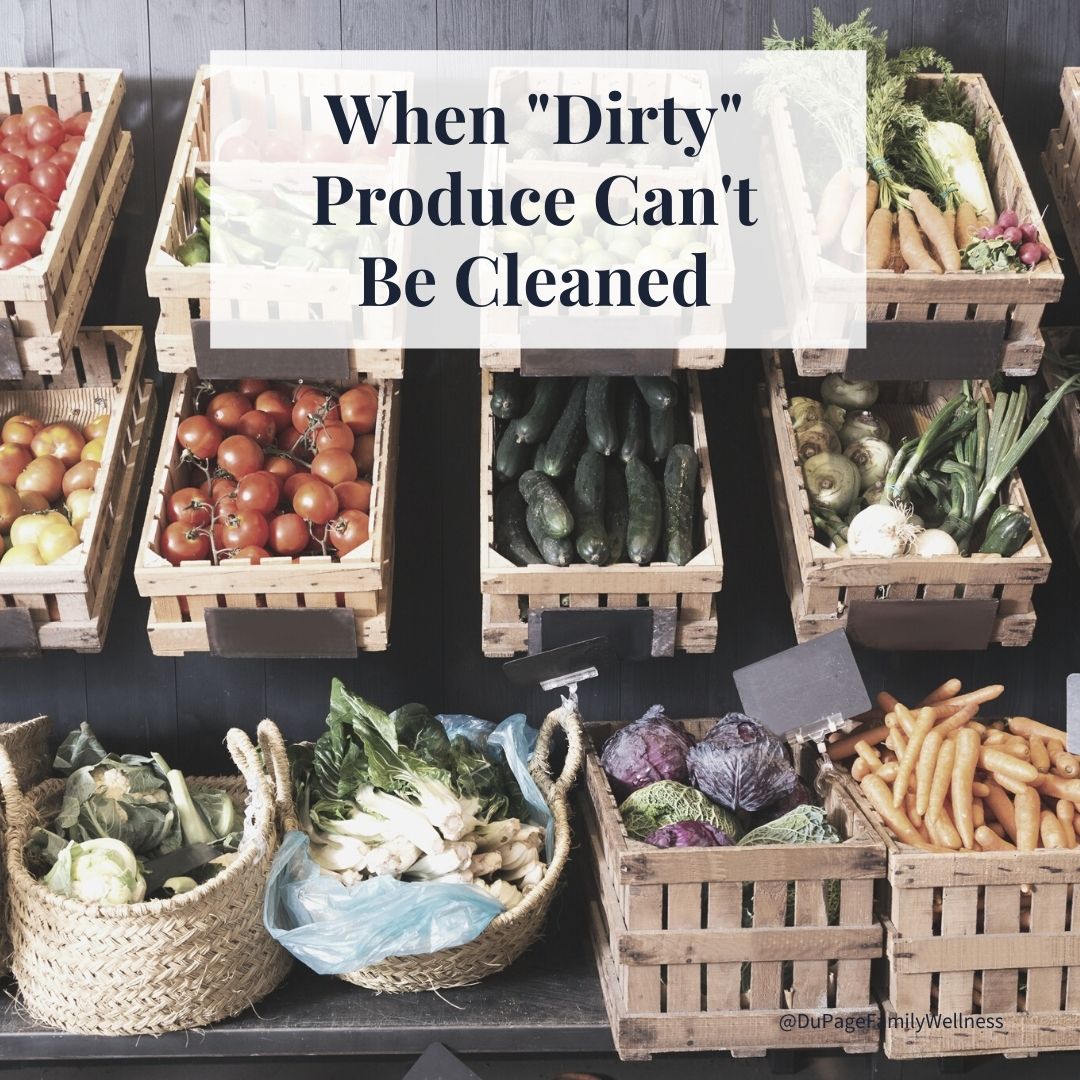 There’s no doubt about it, we live in a stressful world! The busyness of life, work, and kids can be overwhelming enough - but now we have the added stress of living through a pandemic.
There’s no doubt about it, we live in a stressful world! The busyness of life, work, and kids can be overwhelming enough - but now we have the added stress of living through a pandemic.
While our bodies have mechanisms in place to deal with short term stress, we are not meant to be in a constant state of stress. Chronic stress is very hard on the body and can wreak havoc on organ systems such as our adrenals, thyroid, digestive system and beyond.
Let’s take a look at why certain things are so stressful, what we can do to change some of these stressors, and how to offset the stress from things that we can’t change.
It’s Not All Bad
According to Chris Kresser, stress is “an inevitable part of life, and it isn’t even all bad. (However) when the total amount of stress you are experiencing at a given time exceeds your ability to cope with it, that’s when stress wreaks havoc on your health.”
It’s important that we learn to handle stress effectively because, as Kresser explains, “if you’re not doing some form of stress management, you will sabotage all of your
best efforts with diet, exercise, and supplements. (Handling stress) is just that essential.”
So how do we do that? There are many techniques, but first it’s helpful to understand why some experiences are so stressful.
NUTS
Many researchers use 4 key factors to determine how we perceive stress. You can use the analogy NUTS to think about this.
Read more ...
 Are you constantly running between work, family, and other responsibilities?
Are you constantly running between work, family, and other responsibilities?
If you are like most people, life can feel pretty overwhelming at times. It hardly seems like there are enough hours in the day to get everything done let alone get a good night’s sleep. But sleep is one of the most fundamental functions we do each day.
Without good sleep you will not only feel terrible, but you will actually begin to damage your body. Your health will be affected in subtle and not so subtle ways.
Let’s explore why sleep is so important and what you can do to get a better nights rest.
Why Is Sleep So Important?
Sleep is essential for basic repair of the body's systems! Each night as we rest, the body is busy repairing tissue and muscles. Rebuilding also includes necessary repairs to the neurological, endocrine, musculature, digestive, and immune systems.
While you are asleep, your body produces melatonin, one of the main hormones that controls your circadian rhythms. Melatonin is known to increase your immune system function which which is crucial to your overall health.
Without adequate sleep, our bodies will not repair properly and our hormones will get out of balance.
How Much Sleep Do You Need?
Most adults need between 7-9 hours of sleep each night depending on their circumstances and genetics. But almost a third of adults get less than 6 hours of sleep per night!
Sleeping for less than 6 hours a day is associated with chronic inflammation, obesity, insulin resistance, diabetes, cardiovascular disease, heart disease, hypertension, as well as psychiatric disorders like depression & anxiety.
Read more ...
 Are you rushed in the morning? Is it hard to get out the door, let alone have a decent breakfast? It’s a struggle for many people, but when you take a look at the research you will find just how important that first meal is.
Are you rushed in the morning? Is it hard to get out the door, let alone have a decent breakfast? It’s a struggle for many people, but when you take a look at the research you will find just how important that first meal is.
Let’s take a quick look at the research and then talk about what you should be eating for breakfast and why.
A Bigger Breakfast
A study from 2013 looked at the difference between those eating a high caloric breakfast vs. those eating a high caloric dinner.
Researchers split the women into 2 groups. Both groups were on a reduced calorie diet of about 1400 calories. The first group had 700 calories at breakfast, 500 at lunch, and 200 at dinner. The second ate 200 at breakfast, 500 at lunch, and 700 calorie at dinner time.
The Big Breakfast Group
- Lost more weight
- Lost more inches at waist
- Had greater reductions in fasting glucose
- Had greater reductions in fasting insulin
- Greater decreases in triglycerides
- Had lower hunger scores and higher satiety scores
This study was on overweight and obese women.... BUT... another study had similar findings of better blood sugar and insulin control in lean women with PCOS. Effects of caloric intake timing on insulin resistance and hyperandrogenism in lean women with polycystic ovary syndrome - PubMed (nih.gov)
Read more ...
 When it comes to our food, not all sources are created equal. Real food is something that was grown in the ground or was once alive. But even with real food, it is important to consider the quality.
When it comes to our food, not all sources are created equal. Real food is something that was grown in the ground or was once alive. But even with real food, it is important to consider the quality.
The quality of your food in great part depends on the environment in which it was raised. For plants it is important to find out if it was sprayed with a bunch of nasty chemicals. For animal products it is important to look at the health of the animal.
Let's take a look at what this means for you when selecting meats and dairy.
The Natural Environment
Years ago, our ancestors were hunters and gatherers. This means that the animals they ate were free to roam in their natural habitat. They got plenty of exercise and ate their natural diet. These factors created extremely healthy animals, which in turn became extremely healthy food.
As farming became more common, the animals were still kept in a natural environment. The cows were able to graze on grass, and had room to move about. These healthy cows also made healthy food.
But now, many of our livestock are kept in cramped quarters where they don’t get any exercise. They are not able to eat their natural diet. This results in unhealthy livestock that are often pumped full of antibiotics and hormones to fatten them up. As you can imagine these animals do not make healthy food for us.
Read more ...
 As we discussed last week, consuming conventional produce can expose you to toxins. Since toxins are stored in the fat, your body will create more fat as a buffer to these toxins. This is a brilliant way the body tries to protect us, but it can be very frustrating if you are trying to lose weight.
As we discussed last week, consuming conventional produce can expose you to toxins. Since toxins are stored in the fat, your body will create more fat as a buffer to these toxins. This is a brilliant way the body tries to protect us, but it can be very frustrating if you are trying to lose weight.
Ideally everyone would eat organic food all the time, but we know that isn’t always possible. Let’s take a look at the different quality of food, so you can decide what steps you want to take on your health journey.
Recommendations
When talking about fruits and vegetables, the best option is to buy organically grown produce from a local farmer. (Remember that these farms may not be certified organic.) Local farmer’s markets are great places to connect with farmers in the summer, but you can also buy through a Community Supported Agriculture (CSA) program.
When those options are not available, buying organic produce in the grocery store is your next best option.
Read more ...
 There’s no doubt about it, we live in a stressful world! The busyness of life, work, and kids can be overwhelming enough - but now we have the added stress of living through a pandemic.
There’s no doubt about it, we live in a stressful world! The busyness of life, work, and kids can be overwhelming enough - but now we have the added stress of living through a pandemic. 

 Are you constantly running between work, family, and other responsibilities?
Are you constantly running between work, family, and other responsibilities?  Are you rushed in the morning? Is it hard to get out the door, let alone have a decent breakfast? It’s a struggle for many people, but when you take a look at the research you will find just how important that first meal is.
Are you rushed in the morning? Is it hard to get out the door, let alone have a decent breakfast? It’s a struggle for many people, but when you take a look at the research you will find just how important that first meal is. When it comes to our food, not all sources are created equal. Real food is something that was grown in the ground or was once alive. But even with real food, it is important to consider the quality.
When it comes to our food, not all sources are created equal. Real food is something that was grown in the ground or was once alive. But even with real food, it is important to consider the quality. As we discussed last week, consuming conventional produce can expose you to toxins. Since toxins are stored in the fat, your body will create more fat as a buffer to these toxins. This is a brilliant way the body tries to protect us, but it can be very frustrating if you are trying to lose weight.
As we discussed last week, consuming conventional produce can expose you to toxins. Since toxins are stored in the fat, your body will create more fat as a buffer to these toxins. This is a brilliant way the body tries to protect us, but it can be very frustrating if you are trying to lose weight.